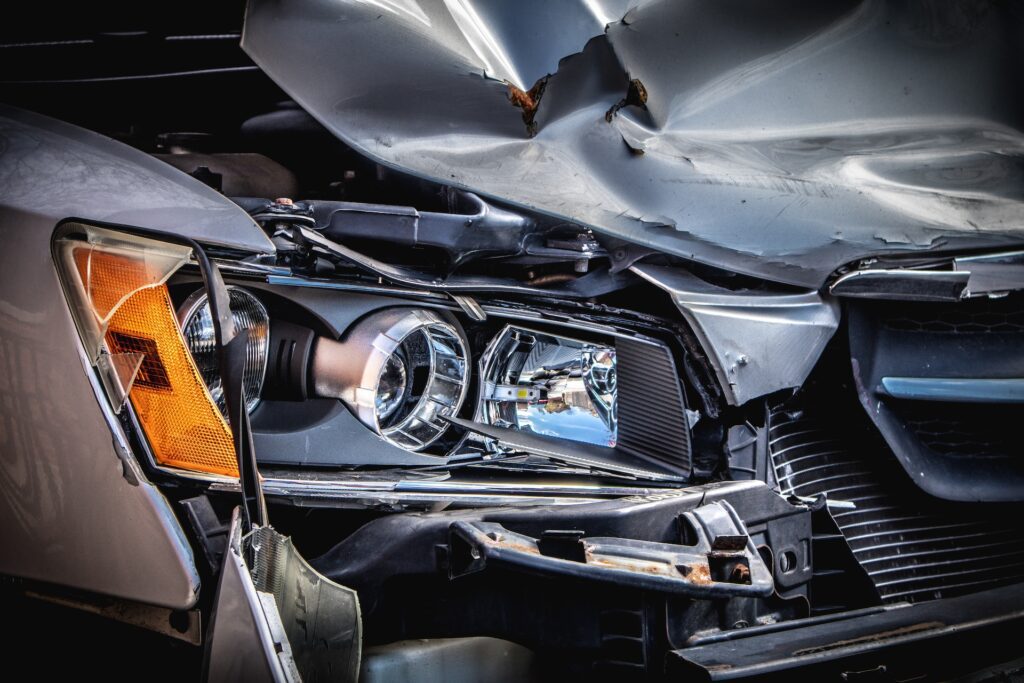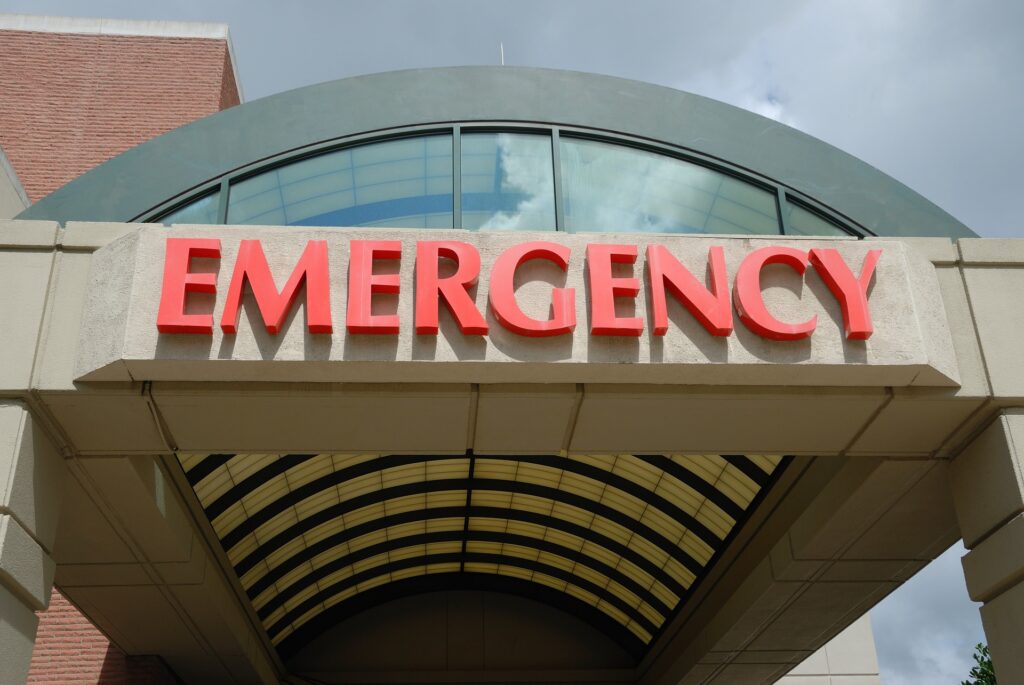A car accident’s aftermath can leave you confused, making it easy to forget what you need to do next. The most important step is to make sure you get immediate medical attention.
You might think it’s unlikely as a motorist, but about 36 car accident cases happen in Austin, Texas, daily. The city recorded nearly 4,000 crashes in 2023 as of April 20. These crashes have resulted in 157 serious injuries and 32 fatalities.
Statistically, about half of these accidents happen at intersections. Moreover, many are preventable and occur primarily because of a motorist’s negligent or reckless behavior. One example is when a driver, late for an appointment, runs a red light causing a collision. Drunk drivers are also responsible for a high number of accidents.
Suppose you or a loved one sustained harm in a motor vehicle accident because of someone else’s negligence. Austin car accident attorneys will advise you to call 911 immediately and ask for medical assistance. This first step is critical if you want to recover financial losses.
In the city of Austin, first responders are the Austin-Travis County EMS (ATCEMS). However, it’s essential to obtain a complete medical evaluation from a doctor, even if you think your injuries are minor.
Key Takeaways
|
The Benefits of Immediate Medical Attention After a Car Accident
Texas requires motorists to report an accident involving property damage, injury, or death to the authorities. However, calling 911 after a car accident should be your first priority.
Getting immediate medical attention after an Austin car accident offers many benefits. It could make the difference between a healthy life and debilitating losses.
Address common injuries after a car accident
Obtaining prompt medical attention can help identify injuries, treat them, and prevent complications. Any delay can lead to long-term consequences, especially when the injuries are not immediately apparent.
The most common injuries in an auto accident include broken bones, contusions, sprains, strains, concussions, whiplash, and herniated discs. Others may suffer from traumatic brain, spinal cord, and internal injuries requiring close monitoring for potential progression. Severe cases often lead to extended hospital stays.
Moreover, getting medical attention for these common injuries is necessary to file a personal injury claim.
Recognize delayed symptoms of car accident injuries
A car crash’s impact puts unexpected pressure on the body despite the safety features in vehicles. Victims often go into shock and may feel numb as a defensive measure. Consequently, pain may come after a few hours or days, but it could be too late.
A thorough assessment by a doctor or medical professional will recognize delayed symptoms of the worst types of injury. Prompt medical attention leads to early treatment of diagnosed injuries and prevents long-term complications.
Untreated injuries such as a herniated disc could worsen over time, putting pressure on tissues and nerves. Initially, you may feel back pain. But as the condition progresses, it may develop into a chronic condition. In serious cases, it can lead to permanent incontinence.
Delayed symptoms after a South Austin car accident include the following:
- Back or shoulder pain
- Blurred vision
- Constricted range of motion
- Dizziness and nausea
- Headaches
- Insomnia
- Loss of memory or concentration
- Neck pain and stiffness
- Numbness or tingling in extremities, such as in the hands and feet
- Swelling
- Abdominal pain
- Changes in behavior
Some injuries exhibiting these symptoms may resolve without treatment. However, it may also signify more serious and potentially disabling health conditions. The best way to know is by getting a thorough checkup and undergoing tests.
Obtain documentation for personal injury cases
Your top priority after a car accident should be your physical and mental well-being. Thus, you should seek immediate medical attention. However, seeking medical attention also serves another purpose.
If the accident is due to another person’s negligence, you can get compensation for the harm you suffered. For instance, a drunk driving victim can file a personal injury suit against the driver.
Personal injury cases require proof of injury, whether you’re dealing with an
Identify long-term effects of car accident injuries
Car accident injuries can have long-term effects. You may think once an injury has healed, it’s no longer a concern. However, it’s not always the case.
Whiplash, for example, is a relatively minor injury that typically resolves on its own. But in some cases, pain and reduced range of motion can linger for years. Similarly, in head-on crashes resulting in traumatic brain injuries, the effects can last a lifetime.
Immediate medical attention can identify the potential for long-term care and rehabilitation. While no doctor guarantees complete recovery with ongoing treatment, not going through one will worsen matters. At the very least, consulting a medical professional can improve your chances of recovery. It may even help prevent chronic issues.
Consider potential mental health issues
Getting in a car accident is a distressing experience, even if it only involves property damage. The emotional and psychological impact can be disabling, particularly when injuries or fatalities occur. Survivors of a fatal crash often carry the burden of the experience for the rest of their lives.
A 2020 study involving 155 car accident victims revealed 32.2 percent of victims experience post-traumatic stress disorder or PTSD. Meanwhile, 17.4 percent suffer from depression, and around 5.8 percent experience low-level anxiety. These mental health issues had significant effects on their financial and emotional health.
Victims may struggle with sleep disturbances, lack of energy, changes in weight, and loss of interest in activities they previously enjoyed. Moreover, emotional distress can cause mood swings and sexual dysfunction, making it hard for victims to sustain personal relationships. Others may consider suicide or abuse substances to cope with their issues.
As with physical injuries, early intervention can improve the chances of recovery from mental disorders. A controlled trial indicates that even email intervention can reduce the psychological distress of car accident victims by 16 percent.
You can get professional help from organizations in Texas. The Texas Health and Human Services provides resources for individuals seeking mental health services. These services include crisis intervention, counseling, and medication management. You can reach their mental health crisis line in Austin at 800-633-5686.
National Alliance on Mental Illness Texas also provides mental illness education, advocacy, and support for individuals and their families. They offer various resources, including support groups and helplines.
However, it would help if you had a diagnosis before getting treatment. Given the prevalence of mental health issues with auto accidents, emergency room doctors always consider them when examining patients. You can get compensation for your mental suffering and other medical problems with the help of a personal injury lawyer.
Legal Perspectives on Following Medical Advice
You should strictly follow your physician’s advice regarding your health and well-being since there are legal implications to your consultation.
One significant implication is its impact on your personal injury claim. When you sue the
Suppose you failed to follow through with the treatment. The defendants may try to use it as evidence against you, preventing you from recovering damages for your injuries. In contrast, strictly following your doctor’s order can give you leverage in your lawsuit.
Another legal consideration is assigning fault. Texas follows modified comparative negligence rules. Meaning each party contributing to the accident, or its aftermath, is liable for a proportional amount of the damages.
Suppose you did not follow the doctor’s medical advice, worsening your injuries or recovery time. The other party may argue that you were partially at fault for your injuries. While this argument does not absolve them of liability, it can reduce your compensation.
Disability claims might also come into play if your injuries keep you from walking, working, or performing certain activities. Filing for disability benefits relies heavily on the certificates issued by your doctors. If you do not follow their medical advice, your physician might not give you the documentation to support your disability claim.
Finally, your insurer may have specific requirements for medical treatment coverage. These requirements include obtaining pre-approval for certain procedures or following recommended treatment plans. Failing to comply with medical advice could result in your
Types of Insurance To Cover Medical Costs


The cost of treatment may make you reluctant to visit the doctor following a car crash. However, you should know you have options.
Texas is a fault state and requires drivers to provide proof of financial capacity in case of a vehicle crash. As a tort state, the at-fault driver’s liability
Suppose the at-fault driver has no
Additionally, Texas requires insurers to include Personal Injury Protection (PIP) coverage in car
Suppose the losses exceed the coverage or the insurer rejects your car accident claim. You can file a lawsuit against the
A personal injury attorney can help motor vehicle accident victims, including those in truck accidents and motorcycle accidents. They can help you seek compensation for your losses and ensure you get the maximum settlement amount.


Pro Tip
Uninsured motorist insurance may cover your medical expenses in a hit-and-run accident. Check your policy to see if you can file a claim to get compensation for your injuries and losses.
Find an Austin Car Accident Lawyer To Get Compensation
Taking smart actions after an Austin car accident can significantly impact your health and finances. The most critical step is getting immediate medical attention.
Obtaining medical attention will help you identify common injuries and discover hidden ones, ultimately mitigating the injury’s damage and consequences. Additionally, obtaining medical attention grants you medical documentation. These documents are essential for filing
Whether you plan to file an
Let’s assume you did the right thing and are under the supervision of a qualified physician. The next step is to hire a competent lawyer to represent you in your claim for damages.
Start your search for competent lawyers in Austin, Texas, by booking a free consultation at The Personal Injury Center. We can match you with personal injury law firms and attorneys in the area. An Austin car accident lawyer will assess your case and advise you on your legal options.
Getting medical attention after an Austin car accident is critical for your health and legal rights. Find a lawyer at The Personal Injury Center to discuss your options.
FAQs on Austin Car Accidents
What is the legal limit for blood alcohol concentration in Texas?
Drunk driving is a criminal offense. If it results in an accident involving injury or death, the driver becomes liable for damages. Section 49.01 of the Texas Penal Code sets the legal limit for intoxication at 0.08 blood alcohol concentration.
What are the most common causes of Austin car accidents?
The common causes of Austin car accidents in 2021 include speeding, driving under the influence of drugs or alcohol (DUI), and distracted driving. Aggressive driving, such as tailgating, making unsafe lane changes, and weaving in traffic, also contributes significantly to the number of crashes.
What is a medical lien?
A medical lien is a legal right of a healthcare provider on a personal injury settlement or judgment. An injured person who does not have health insurance or cannot afford to pay for medical treatment upfront can agree to one. In these cases, the healthcare provider agrees to provide medical treatment provided they get paid from the personal injury settlement or verdict.
Medical liens can be complex and may involve negotiations among the injured person, the healthcare provider, and their attorneys. You should understand the terms of any medical lien before agreeing to one. It can significantly impact the final settlement or judgment obtained in the case.



